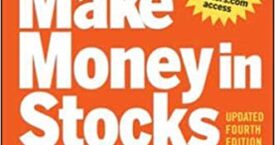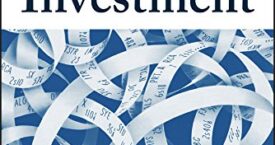Market Maker Definition
Contents:

Market makers help keep the market functioning, meaning if you want to sell a bond, they are there to buy it. Similarly, if you want to buy a stock, they are there to have that stock available to sell to you. There are full service and discount brokers depending on the level of service a client needs. Brokers are intermediaries who have the authorization and expertise to buy securities on an investor’s behalf. A specialist firm formerly employed specialists to represent specific stocks on the New York Stock Exchange. Investopedia requires writers to use primary sources to support their work.

These participants must commit to maintaining fair prices for different types of assets and covering demand at any time. You may not have known it before, but market makers have always been present in financialmarkets. Otherwise, large-volume orders would only be executed with long delays, making trading impossible. Market makers carry out the function of keeping the market liquid. Although they can be individuals, the size of the investments needed to allow traders to buy and sell the security means that they are usually large broking firms.
Please note that an investment in digital assets carries risks in addition to the opportunities described above. Market makers make their money in “arbitrage” by trading the products they are specialists for. The more liquid a security is, the easier both you and a market maker can enter and exit positions in that security.
Without market makers, however, trading would slow down significantly. It would take considerably longer for buyers and sellers to be matched with one another. This would reduce liquidity, making it more difficult for you to enter or exit positions and adding to the costs and risks of trading.
Nasdaq Crosses
If a company misses earnings, for example, there will be an exodus out of the stock. Throughout the day, market makers will be both buying and selling the same underlying security countless times. If successful, a market maker’s operations will turn a profit by selling shares at a marginally higher average price than they were purchased at. A market maker is a market participant that buys and sells large amounts of a particular asset in order to facilitate liquidity and ensure the smooth running of financial markets. An individual can be a market maker, but due to the quantity of each asset needed to enable the required volume of trading, a market maker is more commonly a large institution. The market makers provide a required amount of liquidity to the security’s market, and take the other side of trades when there are short-term buy-and-sell-side imbalances in customer orders.

In addition to the large banks or financial institutions mentioned in the article, we can point to UBS, Citi, Barclays, Virtu Financial, Two Sigma Securities, Hudson River Trading and AlphaTheta. Jump Trading, the publicity-shy market maker, uses best-in-class technology and combines sophisticated quantitative research. Despite being in operation since 1999, the company remains highly secretive. Reportedly, Jump Trading and its sister company, Jump Capital, are currently diving deeper into crypto.
To compensate for the risk of buying an asset that may devalue, market makers maintain a spread on the assets that they enable you to trade. Market makers earn money on the bid-ask spread because they transact so much volume. So, if a market maker is buying shares on average for a few pennies less than it sells them for, with enough volume it generates a significant amount of income.
Market maker
For example, consider an investor who sees that Apple stock has a bid price of $50 and an ask price of $50.10. What this means is that the market maker bought the Apple shares for $50 and is selling them for $50.10, earning a profit of $0.10. Today, there’s hundreds—if not thousands—of market makers, both human and digital, providing services to various stock exchanges. These can range from large banks or broker-dealers making markets in thousands of securities to individuals or niche firms that concentrate in market making just a few different stocks.
It would also mean market liquidity would be reduced, making it more expensive and more difficult for traders to enter or exit positions. Market making is when a company or an individual buys and sells large amounts of a particular asset. Their main role is to ensure a certain level of liquidity and, thus, keep the financial markets running efficiently. These participants need to meet capital requirements to facilitate transactions. Yes, market makers face the risk of being stuck in the wrong positions.
thoughts on “Market Makers in Options Trading: What Do They Do?”
In the absence of market makers, an investor who wants to sell their securities will not be able to unwind their positions. It is because the market doesn’t always have readily available buyers. The purpose of market makers in a financial market is to keep up the functionality of the market by infusing liquidity. They do so by ensuring that the volume of trades is large enough such that trades can be executed in a seamless fashion. Other participants in the market have the option of lifting the offer from the market maker at their ask price, i.e., $5.50. It means that they can buy from the market maker at the given price.
- GTS, a leading electronic market maker across global financial instruments, has a total of over 10,000 different instruments globally.
- The maker earns their profit from the difference between the two .
- BitDegree.org does not endorse or suggest you to buy, sell or hold any kind of cryptocurrency.
- Many discount brokers offer online trading platforms, which are ideal for self-directed traders and investors.
As for disadvantages, they’re primarily applicable to advanced traders. Each market has its own market makers, which means that each broker uses a quote given by one or several market makers when offering prices to clients. Trading is often carried out through a high-frequency trading algorithm that optimises the bundling and spread arbitrage strategy. These firms are responsible for arranging order flows and compensating brokerages. Under a market-maker scenario, this paper studies how the dynamics of asset prices are affected by different risk attitudes and different learning schemes of different types of investors. When a market maker receives a buy order, it will immediately sell shares from its inventory at its quoted price to fulfill the order.
How to Invest in Stocks Are you ready to jump into the stock market? The Balance uses only high-quality sources, including peer-reviewed studies, to support the facts within our articles. Read our editorial process to learn more about how we fact-check and keep our content accurate, reliable, and trustworthy. I/we have no stock, option or similar derivative position in any of the companies mentioned, and no plans to initiate any such positions within the next 72 hours. IG International Limited is part of the IG Group and its ultimate parent company is IG Group Holdings Plc. IG International Limited receives services from other members of the IG Group including IG Markets Limited.
Although there are various https://trading-market.org/ of brokers, they can be broken down into two categories. Market-making facilitates a smoother flow of financial markets by making it easier for investors and traders to buy and sell. Without market making, there may be insufficient transactions and fewer investment activities.
A market marker is an individual or broker-dealer that has registered with an exchange to buy and sell shares of given stocks directly from other market participants. Financial exchanges rely on market makers to provide orderly trading of the underlying stocks, options, and other products listed on their platforms. The primary role of a broker is to deliver orders from a customer to the stock exchange and provide all the back office and support functions necessary to facilitate those transactions. Whereas, the primary purpose of a market maker is to buy and sell securities from other traders and investors. Market makers that stand ready to buy and sell stocks listed on an exchange, such as the New York Stock Exchange or the London Stock Exchange , are called “third market makers”. Most stock exchanges operate on a “matched bargain” or “order driven” basis.
Low Capital Efficiency
If it receives a sell order, it buys shares at its quoted price and adds them to its inventory. It will take either side of a trade, even if it doesn’t have the other side lined up right away to complete the transaction. Market PricesMarket price refers to the current price prevailing in the market at which goods, services, or assets are purchased or sold. The price point at which the supply of a commodity matches its demand in the market becomes its market price.

An oligopoly may also be a price maker with market power, as firms may be able to collude and control the market price or quantity demanded. The orders made by market makers do not necessarily trade immediately. Often, such orders stay in the order books until they are matched. Chainlink Price Feeds already underpin much of the DeFi economy and play a key role in helping AMMs accurately set asset prices and increase the liquidity available to traders.
Digital Assets: An Expanding Arena for Insider Trading and Market … – JD Supra
Digital Assets: An Expanding Arena for Insider Trading and Market ….
Posted: Wed, 01 Mar 2023 17:01:43 GMT [source]
They typically hold a lot of https://forexarena.net/ of shares in that security so they can fulfill large amounts of orders in a moments notice. Traders at the large market maker said the mystery trading pattern came to a halt in mid-October. Definition and synonyms of market maker from the online English dictionary from Macmillan Education. Stop-Loss orders are sent to the market, but they aren’t displayed on the public order book. Instead, they’re displayed just like any other sell order without clarifying that it’s a Stop-Loss order. As for Trailing Stops, your broker sits on them until they’re triggered and sent to the open market later.
The https://forexaggregator.com/s between the price investors receive and the market prices are the profits for the market makers. Market makers also earn commissions by providing liquidity to their clients’ firms. In short, a market maker acts as an intermediary/broker between supply and demand for securities. Market makers earn a profit through the spread between the securities bid and offer price. Because market makers bear the risk of covering a given security, which may drop in price, they are compensated for this risk of holding the assets.
All in all, market makers are critical to the platform’s appeal as a trading venue for exchanges that operate a maker-taker structure. Exchanges reward makers with reduced fees since they supply liquidity. Takers, on the other hand, exploit this liquidity to quickly acquire and sell assets. Using a dynamic automated market maker model, Sigmadex leverages Chainlink Price Feeds and implied volatility to help dynamically distribute liquidity along the price curve. By incorporating multiple dynamic variables into its algorithm, it can create a more robust market maker that adapts to changing market conditions. These AMM exchanges are based on a constant function, where the combined asset reserves of trading pairs must remain unchanged.
Since the market maker bought the option at the bid of 1.20 and sold the option for 1.60 , the market maker made a profit of 0.40, or $40 taking into account theleveraged multiplier effect of options. A broker acts as an intermediary, facilitating orders from buyers and sellers; a market maker provides order execution. The market maker sells to and buys from its clients and is compensated by means of price differentials for the service of providing liquidity, reducing transaction costs and facilitating trade.

